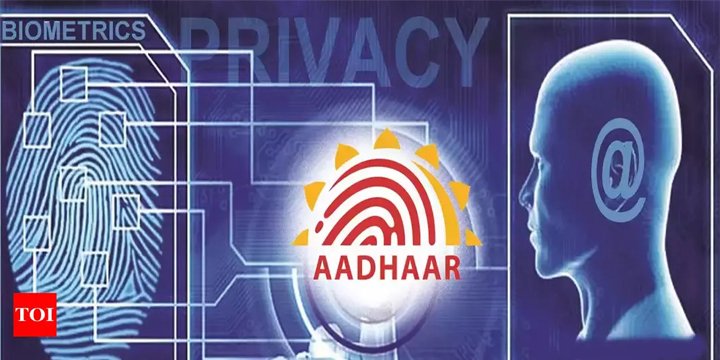Aadhaar biometrics not reliable in India’s climate: What Moody’s has said
Context- Raising major red flags about Aadhaar – India’s 12-digit universal identity – global rating major Moody’s Investors Service has questioned the reliability of biometric technologies, especially for people in hot and humid climates, and pointed to consequent service denials caused by this.
(Credits- ndiagrowing.com)
The government has rejected the claims. “A certain investor service has, without citing any evidence or basis, made sweeping assertions against Aadhaar, the most trusted digital ID in the world,” it said in a statement
The concerns come a year after the country’s top auditor, the Comptroller and Auditor General (CAG) of India had pulled up the Unique Identification Authority of India (UIDAI) for Aadhaar’s “deficient data management”.
What Moody’s has said about Aadhaar
- Moody’s has noted that Aadhaar, which is the world’s largest digital ID program, enables access to public and private services, with verification via fingerprint or iris scans, and alternatives like One-Time Passcodes, with an aim to integrate marginalised groups and expand welfare benefits access.
- “However, the system faces hurdles, including the burden of establishing authorisation and concerns about biometric reliability,” Moody’s said.
- “The system often results in service denials, and the reliability of biometric technologies, especially for manual labourers in hot, humid climates, is questionable,” it added.
The government’s response
- In its statement, the government said that the assertions made by Moody’s do not “cite either primary or secondary data or research in support of the opinions presented in it. The investor service did not make any attempt to ascertain facts regarding the issues raised by it from the (UIDAI)”.
- In response to the efficiency of Aadhaar biometrics in India’s hot and humid climate, the government said biometric submission is also possible through contactless means like face authentication and iris authentication.
- “The report also avers that there are security and privacy vulnerabilities in a centralised Aadhaar system. The factual position in this regard has been repeatedly disclosed in response to Parliament questions, where Parliament has been categorically informed that till date no breach has been reported from Aadhaar database,” the statement added.
- The government also said that international agencies such as the IMF and World Bank have “lauded the role of Aadhaar”. “Several nations have also been engaged with the Authority to understand how they may deploy similar digital ID systems,”
Why the reliability concerns are alarming
- The concerns over Aadhaar’s reliability are significant given that it is the primary identity document that is linked to a number of the government’s welfare schemes. So, if the technology is not reliable, it might result in people not receiving various subsidies from the government that they are entitled to.
- As of July 31, 2023, 765.30 million Indians had linked Aadhaar with ration card to avail ration through Public Distribution System. Over 280 million residents linked Aadhaar with cooking gas connection for LPG subsidy through PAHAL.
- Over 788 Million Aadhaar have been uniquely linked with the Bank Accounts on NPCI Mapper. And almost 100 per cent of farmer-beneficiaries under PM Kisan Yojna are connected via Aadhaar.
- The consequences of authentication failures can be extremely grave. For instance, there are documented cases in Jharkhand of starvation deaths linked to Aadhar biometrics failing and people consequently not being able to receive rations from the PDS.
Aadhaar’s recurring concerns
- Even as it has become the de facto identity for over 1.3 billion Indians, issues around Aadhaar’s privacy and reliability have been repeatedly raised over the years.
- Last year, in a report, the CAG said that there are issues of data-matching, errors in authentication, and shortfall in archiving in Aadhaar. It added that the data of Aadhaar card holders have not been matched with their Aadhaar number even after 10 years in some cases.
- It has also criticised the absence of a system to analyse the factors leading to authentication errors, and said that even though UIDAI was maintaining one of the largest biometric databases in the world, it did not have a data archiving policy, which is considered “a vital storage management best practice”.
- The CAG also noted” UIDAI provided Authentication services to banks, mobile operators and other agencies free of charge till March 2019, contrary to the provisions of their own Regulations, depriving revenue to the Government”.
Conclusion- Aadhar has become the de facto identity card for residence and delivery of welfare schemes. Government needs to address the concerns highlighted in the CAG report going forward.
Syllabus- GS-3; Economy
Source- Indian Express


